March 28 stands as one of history’s most eventful days, witnessing the rise and fall of empires, groundbreaking discoveries, and moments that shaped our modern world across centuries of human achievement.
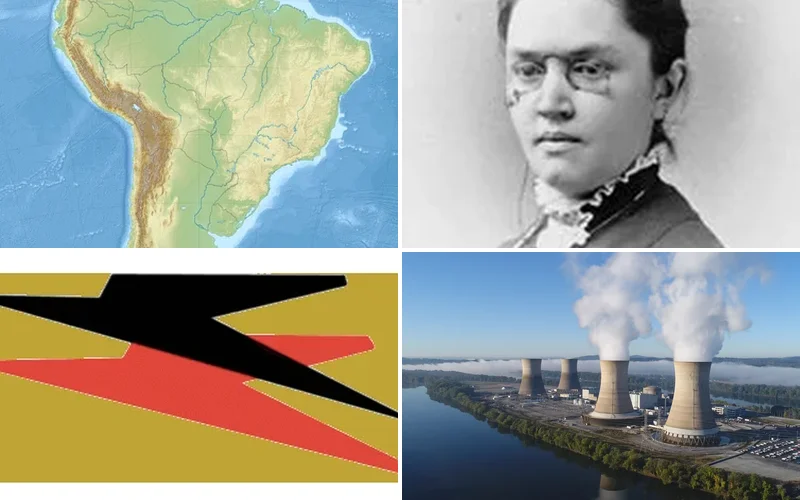
Politics and Government Events on March 28
1939 – Spanish Civil War: Franco Conquers Madrid
Generalissimo Francisco Franco finally conquered Madrid after a brutal three-year siege that devastated the Spanish capital. The fall of Madrid marked the decisive end of the Spanish Civil War and established Franco’s dictatorship.
Republican forces surrendered after enduring months of starvation and relentless bombardment. Franco’s victory ushered in nearly four decades of authoritarian rule that would reshape Spanish society completely.
1959 – China Dissolves Tibet Government
The State Council of the People’s Republic of China formally dissolved the traditional government of Tibet on this date. Chinese authorities moved swiftly to establish direct control over the Himalayan region.
This dramatic political action followed the Tibetan uprising earlier that month. The dissolution marked a fundamental shift in Tibet’s governance and sparked decades of international controversy over Chinese rule.
1979 – British Government Falls by One Vote
The British House of Commons passed a vote of no confidence against James Callaghan’s Labour government by a single vote. This razor-thin margin precipitated an immediate general election that would transform British politics.
The historic vote came after months of strikes and economic turmoil during the “Winter of Discontent.” Margaret Thatcher’s Conservative Party capitalized on the government’s weakness to win the subsequent election decisively.
1946 – Nuclear Control Plan Released
The United States Department of State released the groundbreaking Acheson-Lilienthal Report during the early Cold War period. This comprehensive document outlined an ambitious plan for international control of nuclear power and weapons.
The report proposed creating a supranational authority to oversee all nuclear activities worldwide. Despite its innovative approach, the plan ultimately failed due to mounting tensions between the United States and Soviet Union.
Military and Naval History on March 28
1918 – Rainbow Division Takes Independent Command
General John J. Pershing canceled the 42nd ‘Rainbow’ Division’s training orders and diverted them to occupy the Baccarat sector independently. The Rainbow Division became the first American division to take over an entire sector alone during World War I.
This historic deployment lasted three months, longer than any other American division held a sector independently. The decision demonstrated growing American military confidence and capability on the Western Front.
1941 – Battle of Cape Matapan Begins
The first day of the Battle of Cape Matapan commenced as British and Australian naval forces engaged the Royal Italian Navy near Greece. This major naval confrontation would prove decisive in the Mediterranean theater.
The battle demonstrated British naval superiority and severely weakened Italian naval capabilities. The victory helped secure British control of vital Mediterranean shipping lanes throughout the war.
1942 – Saint-Nazaire Raid Disables German Naval Base
A daring British combined force permanently disabled the Louis Joubert Lock in Saint-Nazaire, France. This audacious operation successfully prevented the German battleship Tirpitz from reaching mid-ocean convoy lanes.
The raid required extraordinary courage as commandos penetrated heavily fortified German positions. The mission’s success significantly reduced the threat to vital Atlantic supply convoys supporting Britain.
1918 – Bloody Maundy Thursday of Tampere
The Finnish Civil War reached its climax as White forces compelled the Reds to attack Tampere’s city center. The fiercest battles erupted in Kalevankangas, producing massive casualties on both sides during this brutal urban combat.
An explosion at the Red headquarters killed several commanders on the same day. This “Bloody Maundy Thursday” marked a turning point in Finland’s devastating civil conflict.
Science and Discovery Milestones on March 28
1910 – First Successful Seaplane Flight
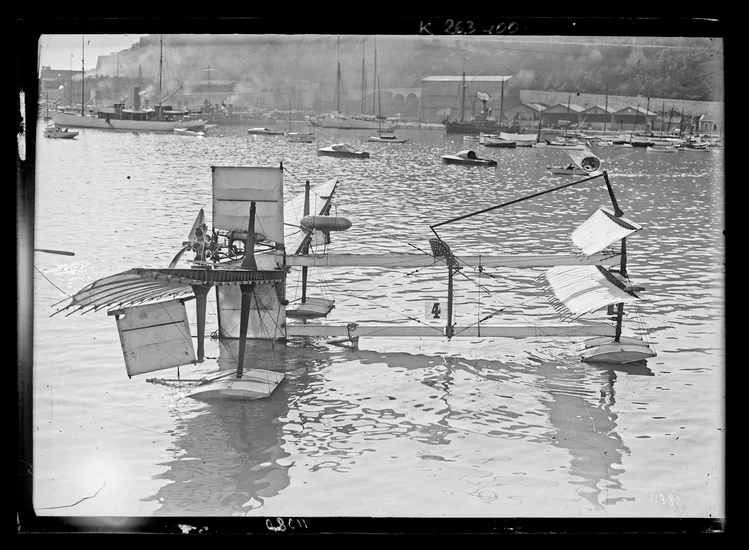
Henri Fabre achieved aviation history by becoming the first person to fly a seaplane successfully. His Fabre Hydravion took off from the water runway at Étang le Barre near Marseille, France.
This groundbreaking flight opened entirely new possibilities for aviation and maritime transportation. Fabre’s achievement laid the foundation for seaplane development that would revolutionize coastal and island transportation worldwide.
1979 – Three Mile Island Nuclear Accident

A coolant leak at Three Mile Island’s Unit 2 nuclear reactor outside Harrisburg, Pennsylvania, led to core overheating and partial meltdown. This became the most serious nuclear accident in United States commercial nuclear power history.
The incident triggered widespread public fear about nuclear power safety and led to major changes in reactor design. The accident fundamentally altered America’s nuclear energy program and influenced global nuclear policy for decades.
1970 – Devastating Turkish Earthquake

A powerful earthquake struck western Turkey at approximately 23:05 local time, killing 1,086 people and injuring at least 1,200 others. The disaster highlighted the region’s vulnerability to seismic activity.
The earthquake’s timing during late evening hours contributed to the high casualty count. This tragedy spurred improvements in Turkish building codes and earthquake preparedness measures.
Cultural and Arts Events on March 28
1969 – Greek Nobel Laureate Opposes Military Junta
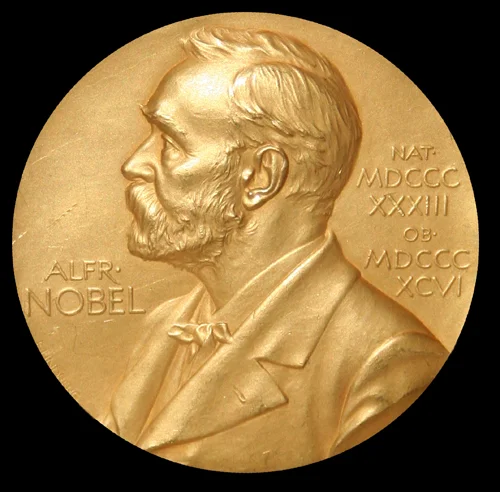
Greek poet and Nobel Prize laureate Giorgos Seferis made a famous statement on the BBC World Service opposing the military junta ruling Greece. His courageous public stance inspired international opposition to the authoritarian regime.
Seferis risked his safety and reputation to speak out against the colonels’ dictatorship. His statement became a rallying cry for democracy advocates throughout Greece and the international community.
1933 – First Airline Sabotage Incident

The Imperial Airways biplane City of Liverpool became the first airliner believed lost to sabotage when a passenger deliberately set fire onboard. This unprecedented act of aviation terrorism shocked the international community.
The incident prompted the development of early aviation security measures and protocols. Airlines began implementing basic safety procedures that would evolve into modern aviation security systems.
1994 – South African Political Violence
African National Congress security guards killed dozens of Inkatha Freedom Party protesters in South Africa during the tumultuous transition period. This tragic incident highlighted the complex tribal and political tensions during apartheid’s end.
The violence occurred just weeks before South Africa’s first democratic elections. The incident demonstrated the challenging path toward national reconciliation and democratic governance.
Religious and Social Events on March 28
1965 – Chilean Earthquake and Mining Disaster

A devastating magnitude 7.4 earthquake struck Chile, triggering a series of tailings dam failures that buried the mining town of El Cobre. The disaster killed at least 500 people in one of Chile’s worst mining-related catastrophes.
The earthquake exposed the dangerous conditions in Chile’s mining industry and inadequate safety regulations. The tragedy led to significant improvements in mining safety standards and disaster preparedness protocols.
1968 – Brazilian Student Killed in Protest
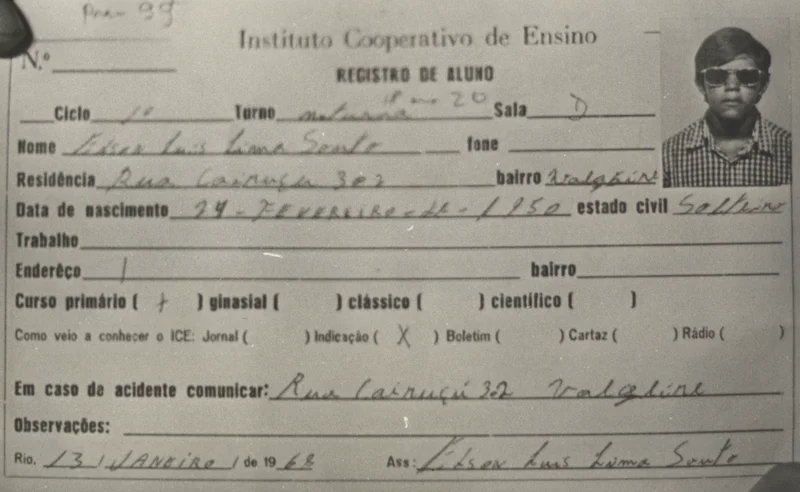
Brazilian high school student Edson Luís de Lima Souto was killed by military police during a student protest against the authoritarian regime. His death became a symbol of resistance against Brazil’s military dictatorship.
The killing sparked nationwide protests and demonstrations against government oppression. Souto’s martyrdom galvanized the Brazilian student movement and international criticism of the military government.
1999 – Kosovo War Massacre
Serb paramilitary and military forces killed at least 130 Kosovo Albanians in the village of Izbica during the Kosovo War. This massacre represented one of the conflict’s most horrific war crimes.
The killings intensified international pressure for NATO intervention in Kosovo. The massacre provided crucial evidence for later war crimes tribunals prosecuting those responsible for ethnic cleansing.
Business and Economic Events on March 28
2006 – Massive French Labor Protests
At least one million union members, students, and unemployed workers took to French streets protesting the government’s proposed First Employment Contract law. The demonstrations represented one of France’s largest labor protests in decades.
The massive turnout forced the government to reconsider its controversial employment legislation. The protests highlighted ongoing tensions between economic modernization and traditional French labor protections.
2001 – Athens International Airport Opens
Athens International Airport Eleftherios Venizelos began operations, replacing the older Hellinikon International Airport. The state-of-the-art facility marked a significant upgrade in Greece’s aviation infrastructure.
The new airport featured modern terminals and expanded capacity to handle increased international traffic. Its opening represented a major step in Greece’s preparation for hosting the 2004 Olympic Games.
1978 – Supreme Court Sterilization Ruling
The US Supreme Court handed down a controversial 5-3 decision in Stump v. Sparkman involving involuntary sterilization and judicial immunity. The ruling addressed complex questions about judicial authority and individual rights.
The case involved a judge who approved sterilization without proper legal procedures. The decision sparked debates about judicial accountability and protection of vulnerable individuals from abuse.
Transportation and Infrastructure on March 28
1920 – Palm Sunday Tornado Outbreak

The Palm Sunday tornado outbreak of 1920 devastated the Great Lakes region and Deep South states with multiple powerful tornadoes. The severe weather system caused extensive property damage and numerous casualties across multiple states.
The outbreak highlighted the need for improved weather forecasting and warning systems. This disaster contributed to the development of better meteorological understanding and tornado prediction capabilities.
1961 – Fatal Airline Crash in Germany

ČSA Flight 511 crashed in Igensdorf, Germany, killing all 52 people aboard in a tragic aviation accident. The disaster shocked the international aviation community and prompted safety investigations.
The crash led to improvements in aircraft maintenance procedures and flight safety protocols. Aviation authorities implemented stricter oversight measures to prevent similar accidents in the future.
2003 – Friendly Fire Incident in Iraq
Two American A-10 Thunderbolt II aircraft mistakenly attacked British tanks during the 2003 invasion of Iraq, killing one soldier. This tragic friendly fire incident highlighted the dangers of coalition warfare and communication failures.
The accident prompted immediate reviews of identification procedures and communication protocols. Military leaders implemented enhanced coordination measures to prevent similar incidents during joint operations.
Sports and Recreation on March 28
1990 – Jesse Owens Receives Congressional Gold Medal
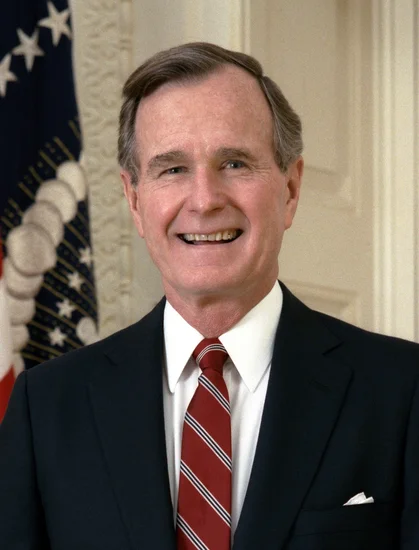
President George H.W. Bush posthumously awarded Jesse Owens the Congressional Gold Medal, America’s highest civilian honor. The ceremony recognized Owens’ extraordinary athletic achievements and his role in challenging racial prejudice.
Owens’ four gold medals at the 1936 Berlin Olympics had undermined Nazi racial theories. The belated recognition acknowledged both his athletic greatness and his contribution to civil rights progress.
2005 – Massive Sumatra Earthquake

A devastating earthquake struck northern Sumatra with a magnitude of 8.6, killing over 1,000 people. The disaster occurred just months after the catastrophic 2004 Indian Ocean tsunami that had devastated the same region.
The earthquake caused widespread destruction and renewed international concern about seismic activity in the region. The disaster prompted continued international assistance and earthquake preparedness initiatives.
2025 – Myanmar Earthquake

A powerful earthquake struck near Mandalay, Myanmar, with a magnitude of 7.7, killing over 100 people. The disaster highlighted Myanmar’s vulnerability to seismic activity and the challenges of disaster response.
The earthquake caused significant damage to infrastructure and buildings in the region. International aid organizations mobilized to provide emergency assistance to affected communities.
Notable Births on March 28
1986 – Lady Gaga Born

American singer-songwriter and actress Lady Gaga was born Stefani Joanne Angelina Germanotta in New York City. Her innovative artistry and theatrical performances would revolutionize popular music and fashion.
Gaga’s unique blend of pop, electronic, and avant-garde elements created a distinctive musical style. Her advocacy for LGBTQ+ rights and mental health awareness expanded her influence beyond entertainment.
1914 – Edmund Muskie Born

American politician Edmund Muskie was born in Rumford, Maine, beginning a distinguished career in public service. He would become the 58th United States Secretary of State and a prominent Democratic leader.
Muskie’s environmental advocacy and foreign policy expertise shaped American politics for decades. His presidential campaign in 1972 established him as a major figure in Democratic Party politics.
1928 – Zbigniew Brzezinski Born

Polish-American political scientist Zbigniew Brzezinski was born in Warsaw, Poland, destined to become one of America’s most influential foreign policy experts. He served as National Security Advisor under President Jimmy Carter.
Brzezinski’s strategic thinking helped shape American Cold War policy and international relations. His academic work and government service established him as a leading voice in geopolitical analysis.
1970 – Vince Vaughn Born

American actor Vince Vaughn was born in Minneapolis, Minnesota, launching a successful career in comedy and drama. His improvisational skills and distinctive comedic timing made him a Hollywood favorite.
Vaughn’s breakthrough roles in independent films led to starring roles in major comedies. His versatility as an actor allowed him to transition successfully between different film genres.
1985 – Stanislas Wawrinka Born

Swiss tennis player Stanislas Wawrinka was born in Lausanne, Switzerland, beginning a remarkable professional tennis career. He would become a three-time Grand Slam champion and Olympic gold medalist.
Wawrinka’s powerful one-handed backhand and mental toughness made him a formidable competitor. His victories at Roland Garros, US Open, and Australian Open established him among tennis’s elite players.
1955 – Reba McEntire Born

American country music singer Reba McEntire was born in McAlester, Oklahoma, beginning an extraordinary career in entertainment. She became known as the “Queen of Country Music” through her powerful vocals and dynamic performances.
McEntire’s crossover success in television and film expanded her influence beyond music. Her business acumen and artistic versatility made her one of entertainment’s most successful performers.
1921 – Dirk Bogarde Born

English actor and author Dirk Bogarde was born in West Hampstead, London, launching a distinguished career in British cinema. His sophisticated performances and literary talents made him a cultural icon.
Bogarde’s transition from matinee idol to serious dramatic actor showcased his remarkable range. His autobiographical writings provided intimate insights into mid-20th century British entertainment industry.
1942 – Neil Kinnock Born

Welsh politician Neil Kinnock was born in Tredegar, Wales, beginning a significant career in British and European politics. He served as Labour Party leader and later Vice-President of the European Commission.
Kinnock’s modernization of the Labour Party helped restore its electoral competitiveness. His European Union leadership demonstrated his commitment to international cooperation and democratic values.
Notable Deaths on March 28
1969 – Dwight D. Eisenhower Dies

Dwight D. Eisenhower, 34th President of the United States and Supreme Allied Commander during World War II, died in Washington, D.C. His death marked the end of an era in American leadership and military history.
Eisenhower’s presidency oversaw economic prosperity and the beginning of the civil rights movement. His military leadership had been instrumental in Allied victory in Europe during World War II.
1941 – Virginia Woolf Dies

English writer Virginia Woolf died by suicide in the River Ouse near her home in Sussex. Her death ended the life of one of literature’s most innovative and influential modernist authors.
Woolf’s experimental novels and feminist essays profoundly influenced 20th-century literature. Her struggles with mental illness and her literary achievements continue to inspire writers and scholars worldwide.
1943 – Sergei Rachmaninoff Dies

Russian pianist, composer, and conductor Sergei Rachmaninoff died in Beverly Hills, California, ending one of classical music’s most brilliant careers. His romantic compositions and virtuosic piano performances left an indelible mark on classical music.
Rachmaninoff’s piano concertos and symphonies remain among the most beloved works in the classical repertoire. His exile from Russia after the revolution added poignancy to his later compositions.
1985 – Marc Chagall Dies

Russian-French painter Marc Chagall died in Saint-Paul-de-Vence, France, concluding a revolutionary artistic career spanning nearly eight decades. His dreamlike paintings and stained glass windows transformed modern art.
Chagall’s unique blend of folk art, religious themes, and modernist techniques created a distinctive artistic style. His work bridged Eastern European Jewish culture with Western European artistic traditions.
1987 – Maria von Trapp Dies

Austrian-American singer Maria von Trapp died in Morrisville, Vermont, ending the life of the woman who inspired “The Sound of Music.” Her family’s escape from Nazi-occupied Austria became one of the most beloved stories in popular culture.
Von Trapp’s musical family and their dramatic wartime experiences captured international imagination. Her later life in America demonstrated her resilience and dedication to music education.
2004 – Peter Ustinov Dies
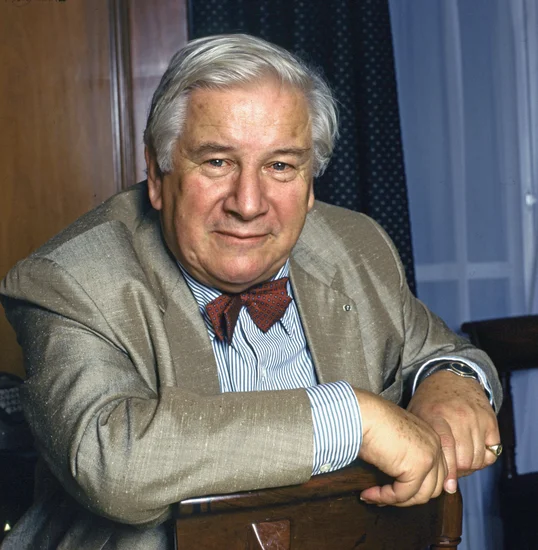
English-Swiss actor, director, producer, and screenwriter Peter Ustinov died in Genolier, Switzerland. His wit, versatility, and humanitarian work made him one of entertainment’s most respected figures.
Ustinov’s performances in film, television, and theater showcased his remarkable range and intelligence. His work as a UNICEF Goodwill Ambassador demonstrated his commitment to international humanitarian causes.
1929 – Katharine Lee Bates Dies
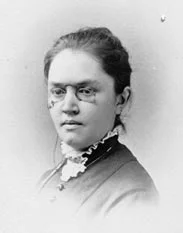
American poet and songwriter Katharine Lee Bates died in Wellesley, Massachusetts, best remembered for writing “America the Beautiful.” Her patriotic hymn became one of America’s most beloved unofficial national anthems.
Bates’ academic career at Wellesley College and her literary contributions extended beyond her famous song. Her writing reflected the optimism and challenges of early 20th-century American society.
1953 – Jim Thorpe Dies

American athlete Jim Thorpe died in Lomita, California, ending the life of one of sports’ greatest all-around competitors. His achievements in football, baseball, and track and field established him as America’s first major sports superstar.
Thorpe’s Olympic victories and professional sports career overcame significant obstacles including racial discrimination. His athletic versatility and competitive spirit continue to inspire athletes worldwide.
Holidays and Observances on March 28
Teachers’ Day in Czech Republic and Slovakia
Czech Republic and Slovakia honor educators on March 28th with Teachers’ Day celebrations recognizing the vital role of education in society. Schools and communities organize special events to appreciate teachers’ contributions to national development.
The observance reflects both nations’ commitment to educational excellence and cultural preservation. Students traditionally present flowers and small gifts to their teachers as expressions of gratitude and respect.
Serfs Emancipation Day in Tibet
Tibet observes Serfs Emancipation Day commemorating the 1959 dissolution of the traditional Tibetan government and the end of serfdom. Chinese authorities established this holiday to mark social reforms in the region.
The observance remains controversial given differing perspectives on Tibetan history and autonomy. The day generates ongoing discussions about cultural preservation and political development in the region.
Christian Feast Days
March 28 marks several Christian feast days including commemorations of Pope Sixtus III, Stephen Harding, and other saints. Eastern Orthodox churches observe specific liturgical traditions associated with this date.
These religious observances connect contemporary believers with centuries of Christian tradition and spiritual heritage. The feast days provide opportunities for prayer, reflection, and community worship across different denominations.
